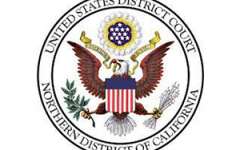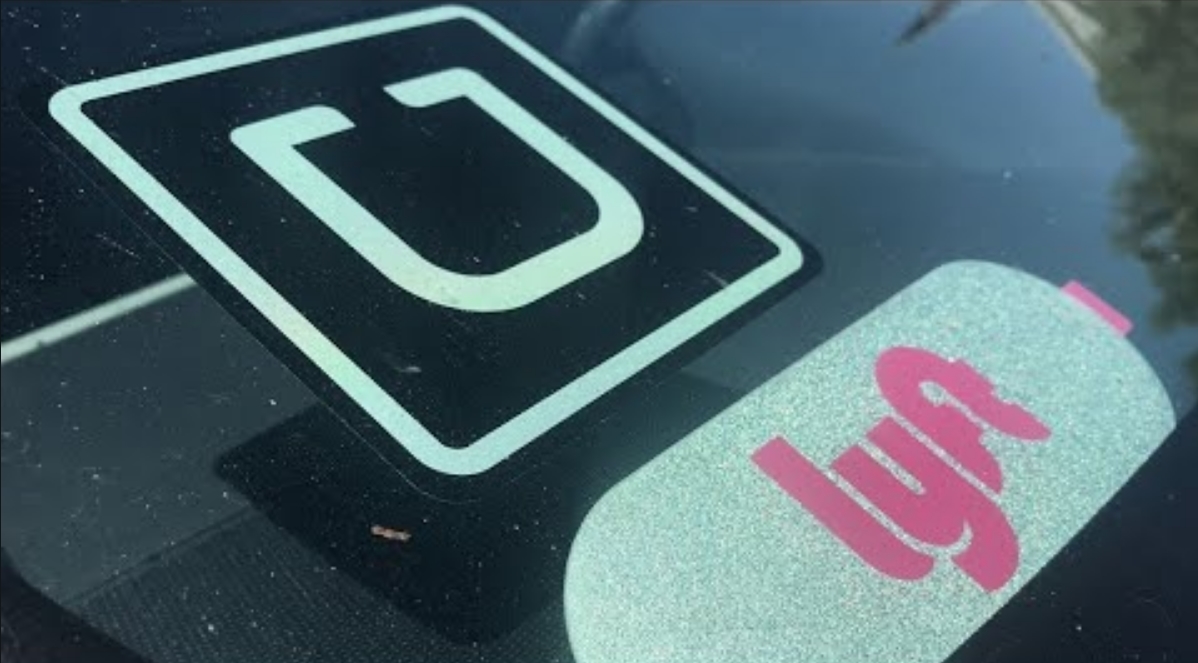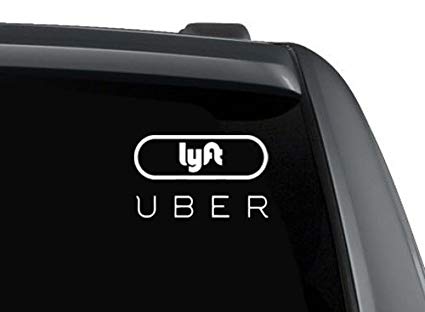
The Uber phone app. (Photo: Youtube)
Analysis of the Lower Court Ruling on Prop. 22
‘By exempting workers who were previously employees from the workers’ compensation system, Prop. 22 violates this provision of the state Constitution’
By Chris Micheli, August 21, 2021 6:05 pm
Proposition 22 passed by voters in the November 3, 2020 General Election election, granted app-based transportation and delivery companies an exception to Assembly Bill 5 by classifying their drivers as “independent contractors” rather than “employees.”
On August 20, an Alameda County Superior Court Judge ruled that Proposition 22, adopted by a 58% vote of the electorate last November, is unconstitutional and therefore unenforceable. The lawsuit was filed by several drivers, along with SEIU California State Council, seeking a writ of mandate to force the State of California to not enforce any provisions of Prop. 22, which made app-based drivers independent contractors receiving specified benefits. Both the State and the ballot measure’s proponents are contesting the lawsuit’s allegations and will appeal this judge’s written ruling.
The first issue the trial court judge addressed concerned workers’ compensation and began with Article XIV, Section 4, which provides the Legislature plenary power over the state’s workers’ compensation system. The lawsuit’s proponents argued successfully that, by exempting workers who were previously employees from the workers’ compensation system, Prop. 22 violates this provision of the state Constitution. Only employees, and not independent contractors, can be a part of the workers’ compensation system.
The trial court determined that Prop. 22 is “not an improper exercise” of the people’s power. The court noted that prior appellate decisions have ruled that the electorate’s lawmaking powers are identical to those of the Legislature. However, the trial court ruled that Prop. 22 limits a power that is vested in the Legislature by the Constitution. In addition, the court decided there is a conflict between Prop. 22 and Article XIV, Section 4 contains language that the Legislature’s power is “unlimited by any provision of this Constitution.” If the Legislature’s authority is limited by an initiative statute, its authority is not “plenary” or “unlimited by any provision of this Constitution.”
Furthermore, the trial court stated that “if the People wish to use their initiative power to restrict or qualify a ‘plenary’ and ‘unlimited’ power granted to the Legislature, they must first do so by initiative constitutional amendment, not by initiative statute” (which is what Prop. 22 was). As such, the provision of statutory law is unconstitutional because it would limit the Legislature’s constitutional power over the workers’ compensation system.
Thereafter, the trial court reviewed the severability language contained in Prop. 22. Here, the trial court noted that if the main provision is held to be unconstitutional, then the whole Act should be stricken. As the court noted, the Legislature may only amend or repeal an initiative statute if the ballot measure permits amendment or repeal without the electors’ approval.
The judge stated that Prop. 22 “also included an unusual provision allowing the Legislature to amends its’ provisions using an unusual procedure.” Prop. 22 allows the Legislature to amends its provisions with a 7/8 vote of both houses if the statute is consistent with and furthers the purpose of the initiative. The court also noted that Prop. 22 provides two specific definitions for what constitutes an amendment to the ballot measure.
The lawsuit’s plaintiffs argued successfully that these additional definitions of amendments are unconstitutional. The trial court explained that the ballot measure language, as it is in effect, is “ripe for a facial challenge.” The court found that the 7/8 vote limitation makes it “difficult to the point of near impossibility” for the Legislature to amend it. Nonetheless, that is not the determinative issue. Instead, the court ruled that the definitions of “amendment” are unconstitutional. The court reviewed “the two important constitutional limits on the people’s power to limit future acts of the legislature.”
The first is that the Legislature may amend or repeal an initiative statute by another statute that becomes effective only when approved by the state’s voters. The second limitation is “implied by the initial grant of power,” which is that an initiative statute cannot limit subsequent legislation unless that subsequent legislation would constitute an “amendment” to the initiative.
Of course, a statute can constitute an amendment in several ways. The trial court ruled that Subdivision (c)(4) is unconstitutional as it purports to limit the Legislature’s ability to pass future legislation that does not constitute an “amendment.”
Turning to the single subject rule argument, which has been interpreted liberally to uphold initiative statutes in the past, the court reviewed the various stated purposes of Prop. 22. The court found that the common theme, purpose or subject of Prop. 22 is protecting Californians in their ability to drive their cars on an independent contract basis, to provide them with certain standards, etc. And, workers’ compensation is a benefit afforded only to employees.
The court also determined that a prohibition on legislation authorizing collective bargaining by app-based drivers does not promote the right to work as an independent contractor, nor does it protect work flexibility, nor does it provide minimum workplace safety and pay standards for those workers. Instead, the court ruled that “It appears only to protect the economic interests of the network companies in having a divided, un-unionized workforce, which is not a stated goal of the legislation.
As a result, the court found that Section 7431 is unconstitutional because it limits the power of a future legislature to define app-based drivers as workers subject to workers’ compensation law. In addition, Section 7465(¢)(4) is unconstitutional because it defines unrelated legislation as an “amendment” and is not germane to Proposition 22’s stated “theme, purpose, or subject.” Finally, the trial court ruled that Section 7451 is not severable from the remainder of the statute and, as a result, the entirety of Proposition 22 is unenforceable.
The proponents of Prop. 22 are expected to appeal this decision. Most court observers believe it will ultimately have to be reviewed by the California Supreme Court.
- Proration of Estate Taxes - February 28, 2026
- Corporations Commissioner Powers - February 27, 2026
- Death Deeds in California - February 27, 2026





As a native Californian I was raised thinking the initiative process was Nation Wide, as an adult I found out I was mistaken but what always boggles my mind is that people pushing Ballot Initiatives go to great lengths to write them, getting them approved then gather signatures then getting voted in only to have some Judge somewhere declare it Un-Constitutional. WHY is this not vetted out in the beginning????? People on the PLUS side of the Initiative really get hosed and it seems completely unfair nor does it seem to serve the Will of the People.
Have you noticed that items that get voted on and passed in CA that do not align to liberal politics always get challenged (i.e. prop 187) and find a judge to overturn them or they flat out Executive order it out (see newsom and death penalty).
Then there is their bait and switches of such as that boondoggle train where voters only voted for 3 billion from fed and 7 billion from CA to build it. Democrats created a loophole to expand it to 90 billion and reduce the speed of train that was originally stated
Democrats never accept voters who want something that does not align with their agenda
One thing confuses me. The AB 5 legislation already contains exemptions for certain classes of employees. The list includes freelance writers, graphic designers, travel agents, appraisers, home inspectors, as well as other occupation types. If the underlying theory of this case is that Prop 22 violates the constitution because it denies Lyft and Uber drivers access to the workmen’s comp program, why wouldn’t that same constitutional constraint apply to the workers who are granted exemptions under this law? Shouldn’t AB-5 itself then be considered unconstitutional for the very same reason?
@steve
It sounded to me that the whole premise was on legislative AB5 versus people voting for an initiative outside of legislation.
It seems that they do not want people overruling them unless it fits their agenda
Right. But in AB 5, the LEGISLATURE was granting the exceptions. Remember that Article XIV of the California Constitution gives the LEGISLATURE total control over workman’s comp, so only the LEGISLATURE may decide, directly or indirectly, the status of app drivers. But Prop 22 was an initiative, not a legislative act, so it infringed on the legislature’s plenary power, so it was struck down. On the other hand, if prop 22 had gone through the initiated constitutional amendment process or if the legislature had passed a bill identical to prop 22, the same exception would be valid.